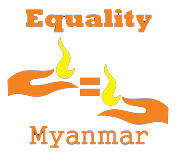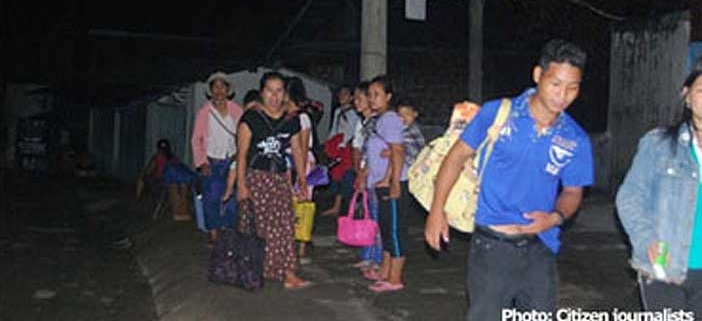MONDAY, 20 FEBRUARY 2012
After the conditions in Kachin State are “safe,” the Burmese government plans to resettle displaced people and refugees sometime before May, allowing them to return to their homes and farms.
Government officials held a meeting last week with U.N. agencies, international nongovernmental groups and members of civil society to explain the plan, according to an article in The New Light of Myanmar on Monday.
In mid-January, the government peacemaking team and the Kachin Independence Organization met for the first time to discuss peace since renewed fighting broke out in mid-summer. Armed clashes have continued despite a government order not to launch offensives.
The peace team leader, Aung Min, said last week that he expected the country to be at peace within three months.
Phone Swe, the deputy minister for Social Welfare, Relief and Resettlement, and Major Zaw Win of the Department of Progress of Border Areas and National Races, led the meeting in Myitkyina on February 13.
A worker with the NGO Karuna, who attended the meeting, told the English-language newspaper that officials said they “would not force people to return home.”
“They will collect detailed information from the refugees, such as how many houses have been destroyed, whether they really want to go home, where they want to live and so on,” she said. “If possible and if the refugees want to go home [the government]will assist them to return home. They also plan to provide two weeks of provisions when they leave the camp so they have food before resuming income-generating activities.”
Government officials are collecting data on the number of people in the refugees camps so that they can arrange provisions and are forming a resettlement committee. She said that nongovernment participants in the meeting said refugees should return home only when the situation is safe or the conflict has been definitively settled.
Kum Shawng, director of the Community Development Department in the Kachin Baptist Convention, said: “They invited two people from each NGO to become committee members. For the time being, they presented their plans and consulted with NGOs and said they wouldn’t force [refugees]to return.”
The United Nations Office for the Coordination of Humanitarian Affairs declined to comment when contacted last week, said the newspaper.


 Equality Myanmar (EQMM) is a leading nongovernmental organization that organises a wide range of human rights education and advocacy programs, the documentation human rights violations, and provides emergency support for activists, human rights defenders, and their families. We work with a range of local civil society organizations, educators, activists, various local actors, and our programs and activities reach all states and regions in Myanmar.
Equality Myanmar (EQMM) is a leading nongovernmental organization that organises a wide range of human rights education and advocacy programs, the documentation human rights violations, and provides emergency support for activists, human rights defenders, and their families. We work with a range of local civil society organizations, educators, activists, various local actors, and our programs and activities reach all states and regions in Myanmar.
